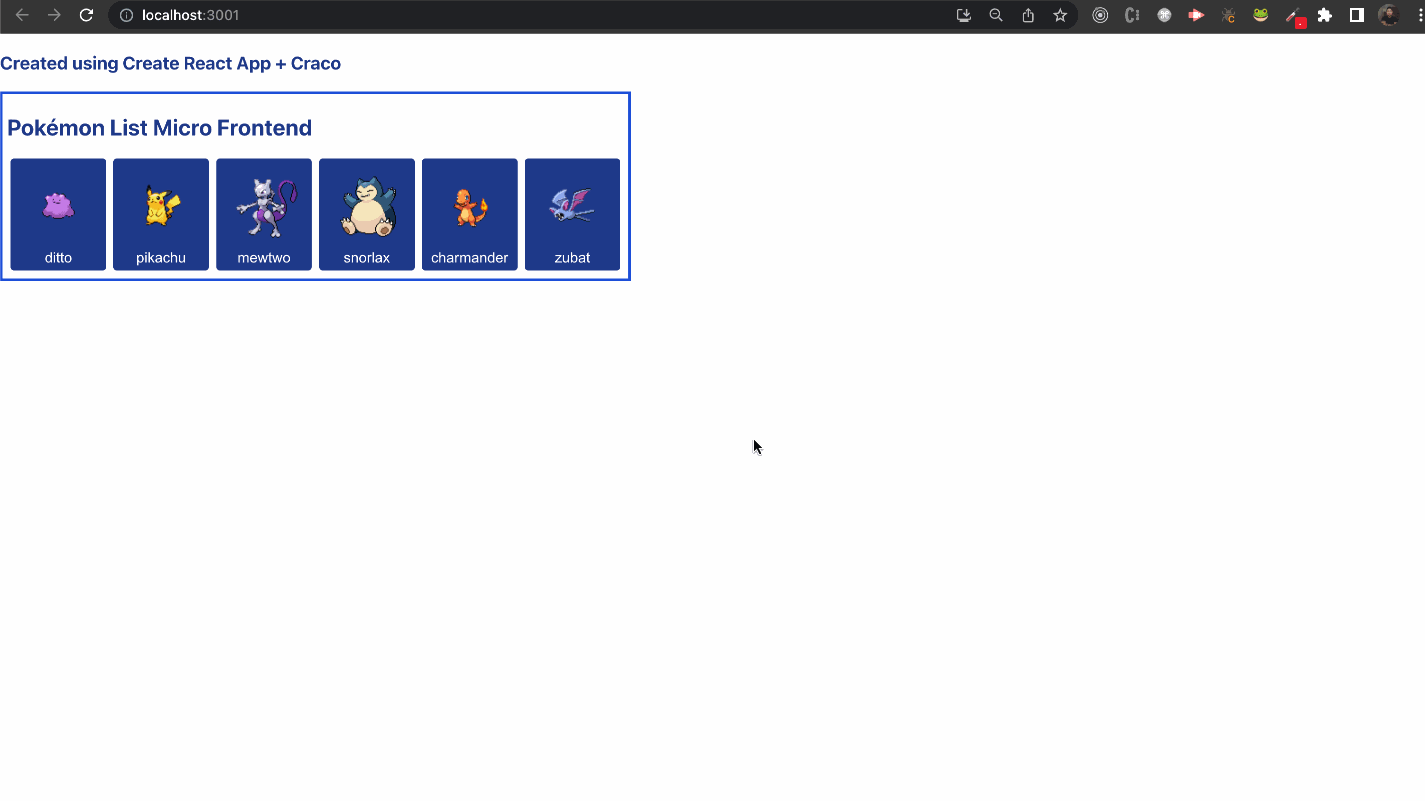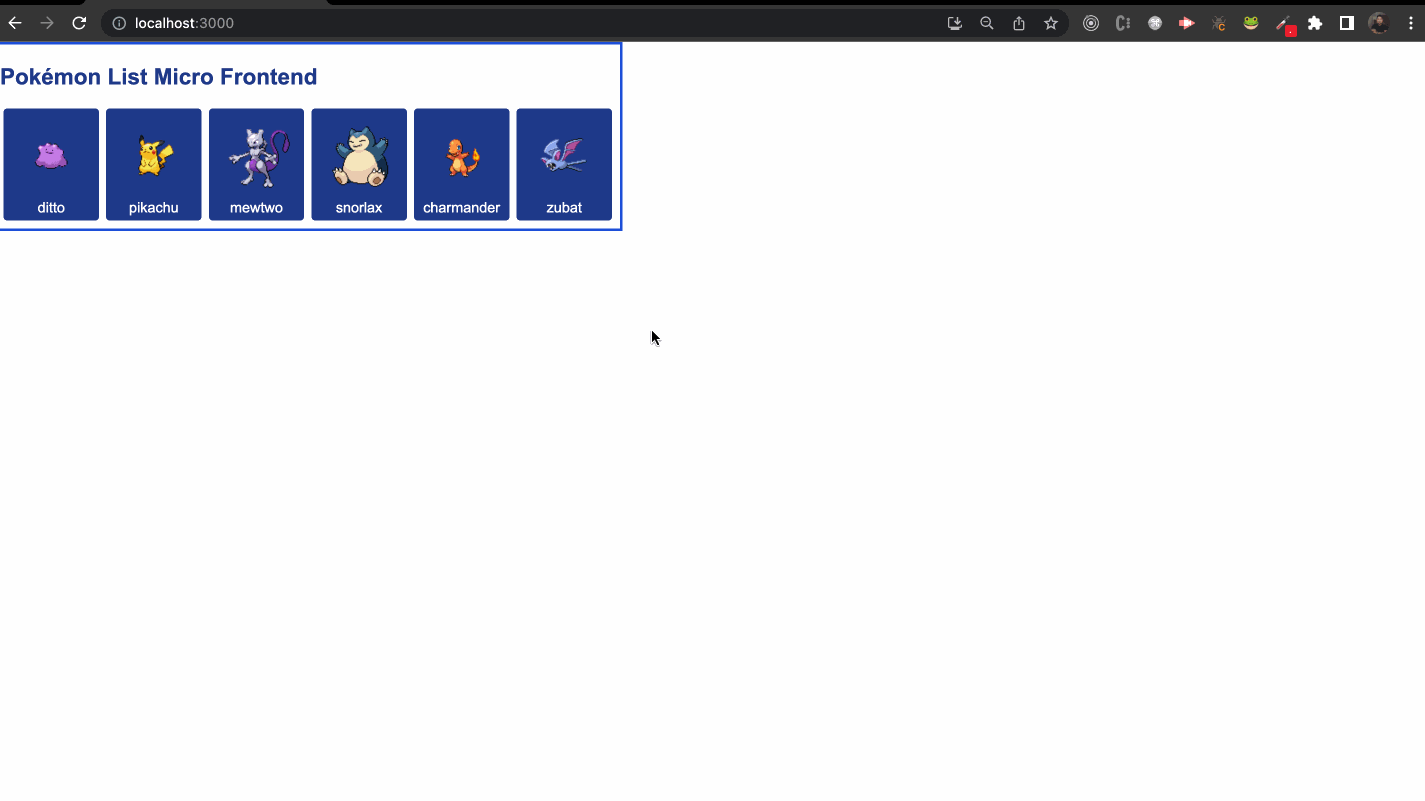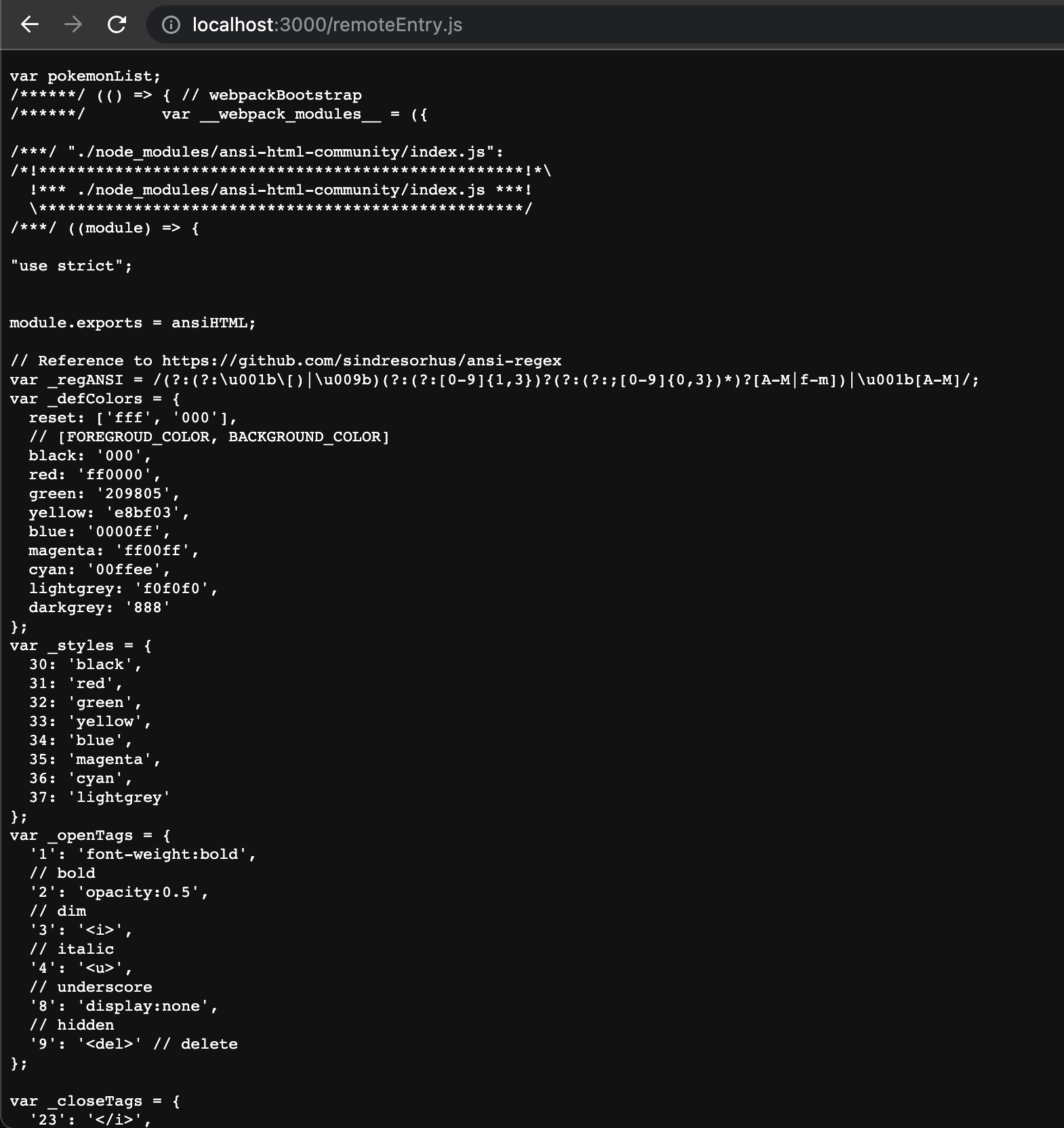This project was done to introduce the Micro Front-ends (MF's) using the concept of Runtime Sharing Components and Module Federation with Webpack 5.
Also, the project is using Jotai to manage the state of MF.
The project contains two types of projects using React and the Module Federation. One of them is using Vite with originjs/vite-plugin-federation (vite plugin to configure module federation).
The other is using Create React App (CRA) and Craco to extends the Webpack default of CRA and configure the module federation.
We have two packages, one of them using vite and other using CRA. Each of one contains two projects. The host and remote app.
The "host" is the pokemons-home will consume the micro front-end.
The "remote" is the pokemon-list where it contains the MF that will be exposed and the state using jotai to manage state of MF.
The MF pokemon-list is only listing pokémons fetch API on mocks pokemonList.json. It will return a list of pokemóns, with id, name and sprite. Also, the MF manages the state of list of pokémons and if there's some selected, using Jotai.
The main app (host) will consume the MF and interact with him, using the jotai hook exposed to select a pokémon.
According to the documentation:
Multiple separate builds should form a single application. These separate builds act like containers and can expose and consume code between builds, creating a single, unified application.
Module federation allow us to expose our components and state. The module federation is available on webpack 5.
The module federation generates a file called remoteEntry.js that is the manifest to our application consume and/or expose what we want.
Example of remoteEntry file:
This file is generated after the build of application.
The vite offers a plugin to integrate with module federation called originjs/vite-plugin-federation that you can install and add on your vite.config.js
One of the options to use module federations on CRA app, is using the craco. Craco is a tool that "extends" the webpack config to we use the ModuleFederationPlugin available on webpack.
We need to create a file called .cracorc.js and we can configure plugins on our project.
- Node >= 16.0.0
- NPM or Yarn
I will be using yarn to manage our dependencies.
-
First, enter some project (vite or CRA).
-
We will have two project, the
pokemons-homeandpokemons-list. -
First, enter on
pokemons-list, open the first terminal and type the command:
yarn
To install the dependencies
If you are on the vite project:
yarn build && yarn previewif you are on the CRA project
yarn build && yarn devThe build will generate the remoteEntry.js and the micro frontend in on air.
- Now, open the second terminal and enter on
pokemons-homeand type:
yarnAnd you can just run, using:
yarn devNow the host app is available, consuming the micro frontend and allow to interact with the state of component.
If you liked the project, star and share the repository for everyone!!! Thank you, guys!
Created by Kevin Uehara - 2023



